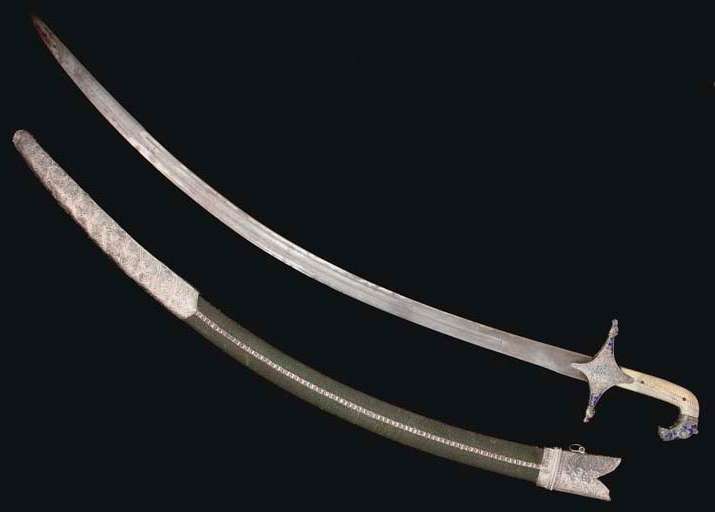FWP:
SETS
ROAD: {10,12}
SOUND EFFECTS: {26,7}
SWORD: {1,3}
On the possibilities of juz , see {101,1}. On the phrase la;z;zat-e aazaar , see {112,4}.
As in the previous verse, {92,2}, jaadah , 'path', is used in a context of extreme abstractness. This seems to be a pattern: for more examples, see {9,4}. The phrase jaadah-e raah-e vafaa is reminiscent of {10,12}.
I've interpreted rahii jaatii hai as an inverted form of jaatii rahii hai , 'has remained going [away]'. Another way to do it would be rahii ( hu))ii ) jaatii hai , 'in a state of having remained, habitually goes [away]'. In either case, this verb provides an excellent pivot around which the verse turns. Its paradoxicalness goes well with the 'relish of trouble' or 'pleasure of pain' in the first line. Since the 'pleasure of pain' is complex and contradictory-looking anyway, it's not surprising that the longing for it should simultaneously seem to 'remain' and 'go'. And equally conspicuously, there's a lovely wordplay between rahii and the raah , 'road', in the second line.
One more bit of implicit wordplay can be seen operating, consciously or unconsciously, in Nazm's commentary. The word dam means the edge of a sword-blade. But it also means 'breath' and 'moment'. In a verse like this, about things that are all too short-lived, things that we long to extend beyond their intolerably brief lifespan, how can we not also enjoy the penumbra of associations around dam ? For more on Ghalib's own clearly multivalent use of dam as both 'sword-edge' and 'breath', see {1,3}.
There's striking sound-play in the verse as well. Each line
begins with a conspicuous sequence of three nouns joined by two i.zaafat constructions.
And these two long noun phrases both have no vowels except short a
and long aa . By contrast, the second part of each line
is dominated by long ii sounds. The effect is to create
a sort of 'phonetic parallelism' between the lines that makes them somewhat
echo each other and calls attention to the grammatical and semantic parallels
between the two lines. And contrasts too-- the first line ends in almost too
many verbs, while the second ends without one.
This engraved and enamelled shamshiir , with an ivory hilt, is from Lucknow, early 1800's:

Hali:
For jaadah , that is, 'path', he has given the simile of the edge of a sword. The meaning of the verse is that there is such pleasure in the pain and trouble of passion that one wants to open the heart to it fully and enjoy it; but since the path to faithfulness is entirely the blade of a sword, at the very first step death can be seen. Thus, it’s a pity that the longing for the pleasure of pain remains only within the heart.
==Urdu text: Yadgar-e Ghalib, pp. 146-47